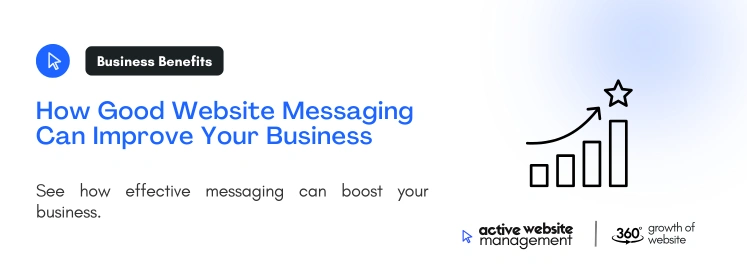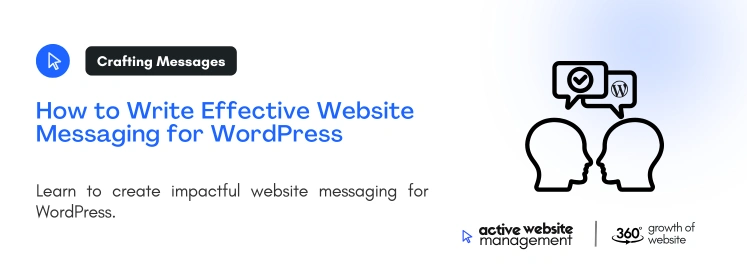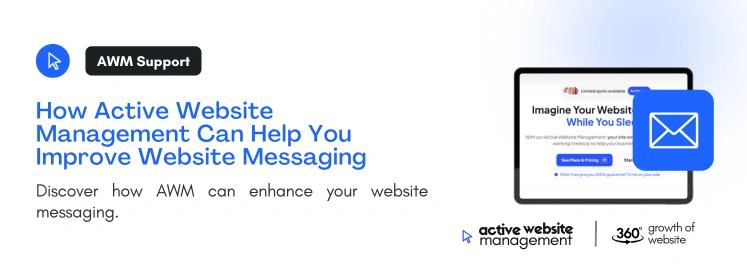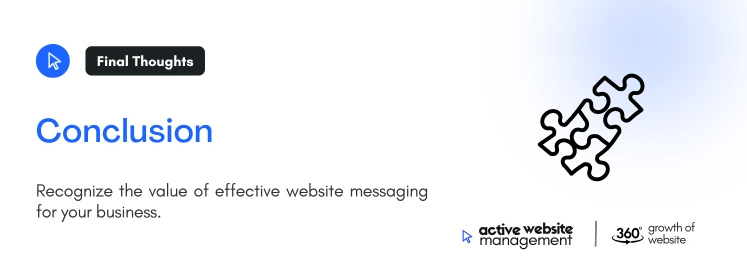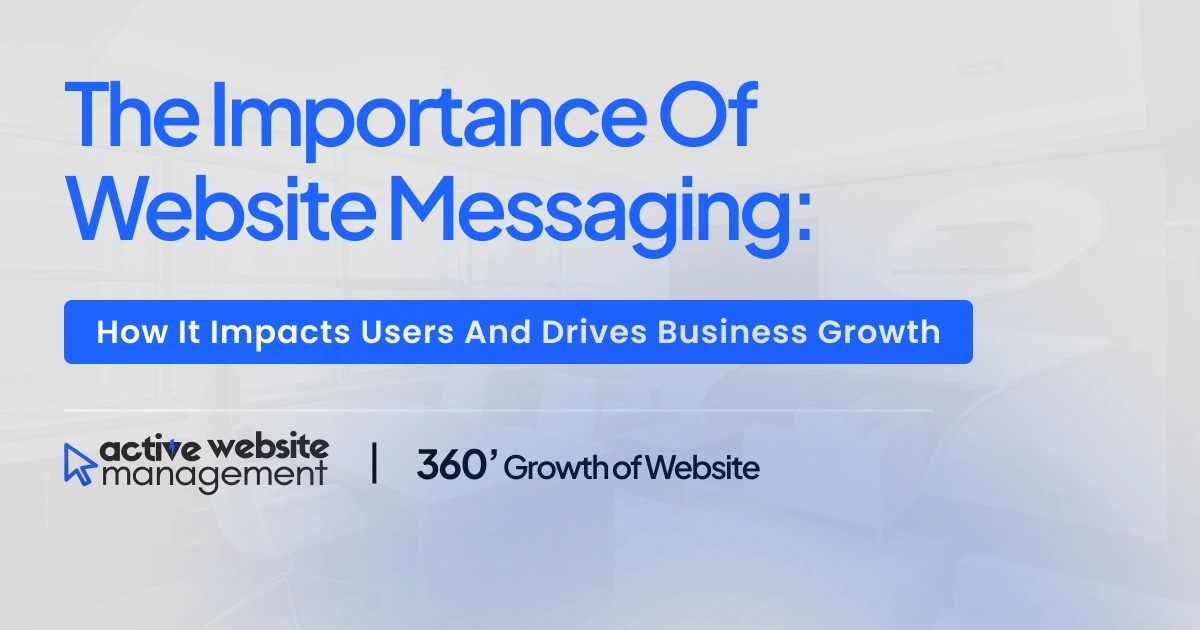
When people talk about websites, the conversation often revolves around design, functionality, and SEO. While these elements are vital, there’s one crucial aspect that is often overlooked—website messaging. The words you choose, the tone you use, and how effectively your website communicates your brand’s value can make or break your business.
In this article, we’ll explore why website messaging is so important, how it affects users, the consequences of poor messaging, the benefits of getting it right, and how you can craft messages that not only capture attention but also convert visitors into customers.
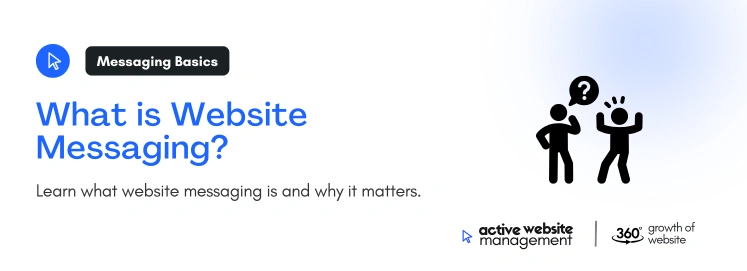
At its core, website messaging refers to the language, tone, and content you use to communicate with your audience on your website. It’s not just about the words on the page; it’s about the overall impression your brand leaves in the minds of your visitors. Website messaging includes everything from your homepage copy to product descriptions, calls to action (CTAs), and even your blog content.
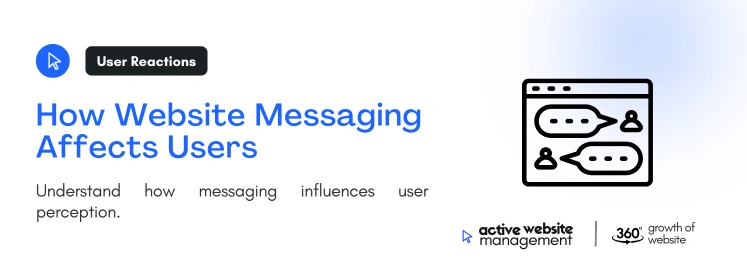
Your website is often the first point of contact between your business and potential customers. Whether you’re aware of it or not, your website is constantly sending messages to users. If these messages are unclear or fail to resonate, users might leave without taking any action.
Don't Wait for Growth—Accelerate It with Active Website Management
It takes less than a second for users to form an impression of your website. The messaging on your homepage or landing page will likely determine whether they stay or leave. If your message is confusing, irrelevant, or lacks personality, users may decide that your business doesn’t understand their needs.
Effective messaging fosters trust. When your website communicates your values, expertise, and dedication clearly, users are more likely to trust you. A website that seems vague or inconsistent can make users wary, leading them to question the legitimacy of your business.
Website messaging also plays a significant role in guiding users toward specific actions. From reading a blog post to signing up for a newsletter or making a purchase, the messaging helps steer users in the right direction. When your messaging is clear and persuasive, users will feel more confident in making decisions.
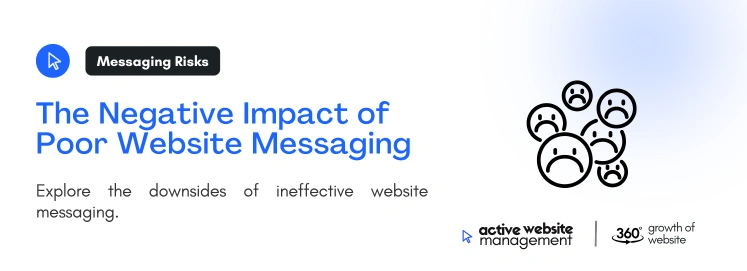
While good website messaging can drive business growth, poor messaging can have the opposite effect. Here are some of the potential negative impacts:
If your messaging is unclear or overly complicated, users may struggle to understand what your business is about. Confused users are less likely to take any action and more likely to leave your site entirely.
Without clear and compelling CTAs, users won’t know what steps to take next. Whether it’s a poorly worded button or a lack of urgency, missed opportunities can cost you conversions and sales.
If your messaging doesn’t align with your brand or fails to communicate your value, your business can lose credibility. Poor grammar, vague language, or even an overly salesy tone can make your business seem unprofessional.
When users can’t quickly understand your offering, they’re more likely to leave your site, leading to high bounce rates. Not only does this hurt your bottom line, but it can also damage your website’s SEO, as search engines tend to rank sites with higher engagement rates more favorably.
The good news is that when you get your messaging right, the rewards can be significant. Let’s take a look at some of the key benefits of effective website messaging.
Don't Wait for Growth—Accelerate It with Active Website Management
Clear, concise, and compelling messaging makes it easy for users to navigate your site and find the information they’re looking for. When your messaging is on point, users are more likely to engage with your content, spend more time on your site, and take the actions you want them to.
Strong website messaging leads to higher conversions. Whether your goal is to generate leads, make sales, or get newsletter sign-ups, effective messaging that resonates with your audience will make it easier to guide users through the sales funnel.
Search engines favor websites that provide value to users. When your website messaging is clear, relevant, and engaging, users are more likely to stay on your site longer, reducing bounce rates and improving SEO.
Good messaging isn’t just about the immediate sale—it’s about building long-term relationships with your customers. By clearly communicating your values, your unique selling points, and your expertise, you can create a loyal customer base that trusts your brand.
Now that we’ve discussed why website messaging is important, let’s dive into how to write it effectively. Crafting the right messaging for your website doesn’t happen by chance—it’s a strategic process. Here’s a step-by-step guide:
Effective messaging begins with a deep understanding of your target audience. Who are they? What problems are they trying to solve? What language do they use? The better you understand your audience, the more tailored and effective your messaging will be.
Your website needs to clearly communicate why your business is unique. What value do you offer that competitors don’t? Your value proposition should be front and center on your homepage and reinforced throughout your site.
Your messaging should be easy to understand. Avoid jargon, technical language, or overly complex sentences. The goal is to communicate your message in the clearest, simplest way possible so that users can quickly grasp what your business is all about.
Many businesses make the mistake of focusing too much on what they offer (features) and not enough on why it matters to the user (benefits). Always frame your messaging around how your product or service benefits the user.
Your CTAs should be clear, compelling, and actionable. Whether it’s “Get Started Now” or “Download Your Free Guide,” your CTAs should make it clear what action users should take and why it’s beneficial to them.
Consistency in tone, voice, and style is crucial for building trust with your audience. All of your messaging, from your homepage to your email campaigns, should align with your brand’s voice and values.
Website messaging isn’t a “set it and forget it” process. You should regularly test your messaging through A/B testing, surveys, or user feedback to see what resonates best with your audience.
Effective website messaging requires ongoing attention, and that’s where Active Website Management (AWM) can make a significant difference. It’s not enough to write great messaging once; your website needs regular updates to ensure that your messaging evolves as your business grows and as market trends change.
With Active Website Management, you don’t have to worry about your website becoming outdated. AWM ensures that your website’s messaging is continually refreshed to reflect your current offerings, customer needs, and industry trends.
Good messaging is closely tied to SEO performance. AWM improves not just the messaging, but also the SEO, ensuring that your website ranks higher and reaches the right audience.
AWM focuses on keeping your messaging aligned with the needs and preferences of your target audience. As part of the service, your messaging will be regularly reviewed and updated to ensure it speaks directly to your customers’ pain points.
Website messaging is one of the most powerful tools in your business arsenal. When done right, it can drive growth, improve user engagement, and boost your bottom line. On the flip side, poor messaging can confuse users, damage your credibility, and hurt your conversions.
By understanding your audience, crafting a clear value proposition, and regularly updating your content, you can ensure your messaging is working for you. And with services like Active Website Management, you can keep your messaging fresh, relevant, and impactful, ensuring your website continues to serve your business and your customers in the best way possible.

Be quick! Spots are almost gone for September. - Starts at ₹6666/month
Get started with AWM today and watch your website grow.
Our expert team is ready to help.
We respect your privacy. Unsubscribe anytime.
We respect your privacy. Unsubscribe anytime.
